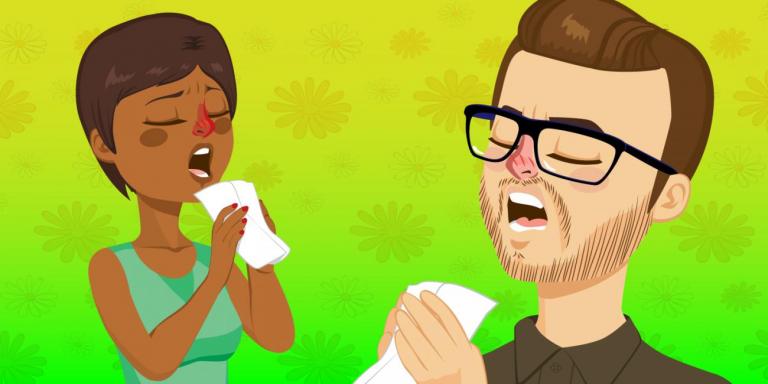Q&A with Dana Ullman, MPH
Sinusitis is an inflammation of the air-filled cavities in the head and face. This condition can result from bacterial, viral, or fungal infection—or it may stem from an allergy. In acknowledgement of the inter-relationship between the nasal and sinus passages, otolaryngologists (ear, nose, and throat specialists) often refer to the condition as “rhinosinusitis.” It’s little wonder that so many people with sinusitis seek alternative treatments: Conventional medical treatments typically involve the use of antibiotics or corticosteroids, neither of which is always effective. And even when they do help, such pharmaceuticals do not cure the underlying problem and may cause new symptoms or health problems.
Q: “Can homeopathy relieve a head cold or sinus pressure that comes on suddenly? When should I start taking the medicine?”
A: Treat a head cold or sinusitis with homeopathic medicines as soon as possible. In contrast to conventional drugs, which tend to suppress the body’s own defensive efforts, homeopathy is a medicinal system that prescribes specially prepared substances intended to strengthen a person’s own immune system. Many people find they get rapid relief when the right homeopathic medicine is taken. Scientific research has shown remarkable results in tests comparing sinusitis sufferers who take either homeopathic medicines or a placebo. One study of 144 patients found that 90 percent of those receiving homeopathic treatment improved after seven days, while only 11 percent of patients prescribed a placebo experienced a similar degree of relief. Another study, involving 113 participants, found that 68 percent of those receiving homeopathic treatment experienced “complete remission” of their symptoms, compared with 9 percent of patients taking a placebo.
Q: “My chronic sinus congestion is at its worst in the fall—and my 10-year-old daughter shares my autumn allergies. Are there any homeopathic remedies that can help, and are they safe for both of us to use?”
A: Sinus problems in the fall are often, though not always, the result of allergies. The research base supporting the homeopathic treatment of allergies is impressive. Common homeopathic medicines for those with autumn allergies include Allium cepa, Euphrasia, Solidago, Arsenicum album, and Pulsatilla. Be assured that homeopathic medicines have a long history of safety for both adults and children, especially when using the 6th or 30th potencies. They are not habit forming and are free of side effects and contraindications. If improvement is not obvious within 24 hours, consider trying another remedy.
Q: “I often get sinus headaches, but I hate to take over-the-counter pain medications. Are there any homeopathic alternatives?”
A: People with sinus pain can benefit from homeopathic medicines in two ways. The average consumer may want to start with one of the common homeopathic formulas labeled for use with sinus problems. These formulas, available over the counter at natural products stores, contain several medicines, each of which is well known for healing a different form of sinus pain. Frequently, one or more of the medicines included in the formula will initiate quick relief. Alternatively, people who are well versed in homeopathy or who consult a quality guidebook may want to select single-ingredient homeopathic medicines (such as Kali bichromicum, Euphorbium, Pulsatilla, Hepar sulphuris, Mercurius, Belladonna, or Luffa operculata). Beginners usually use the 6th, 12th, or 30th potencies, while more experienced users may benefit from the 30th, 200th, or higher potencies.

